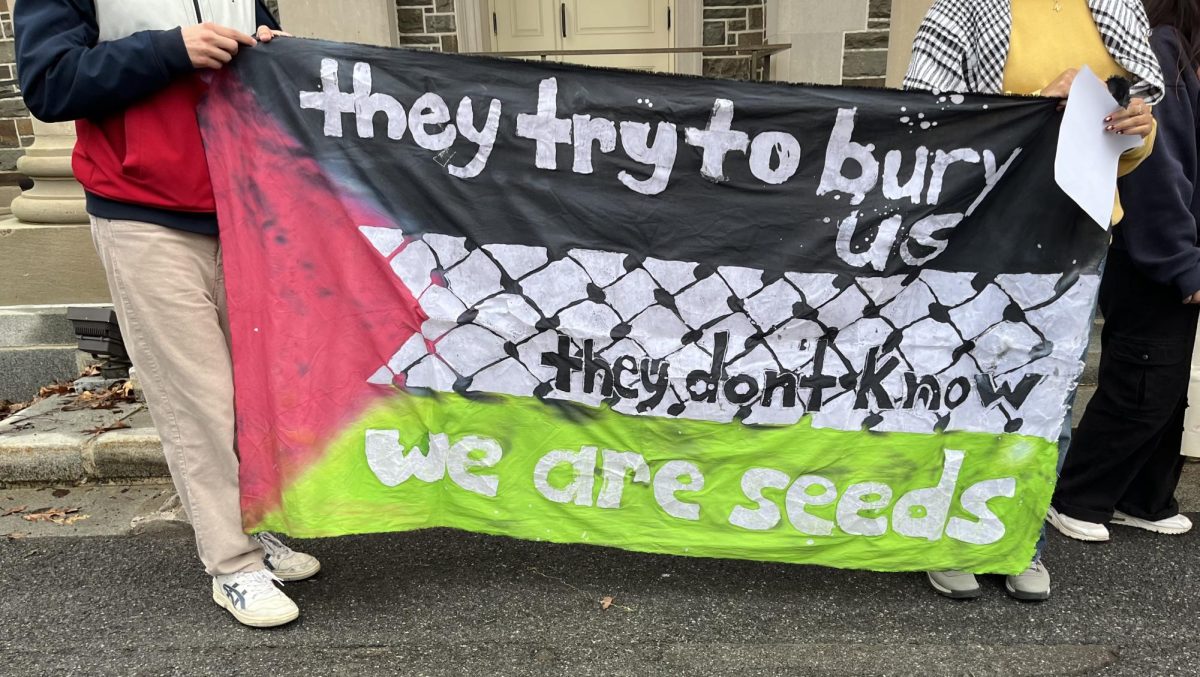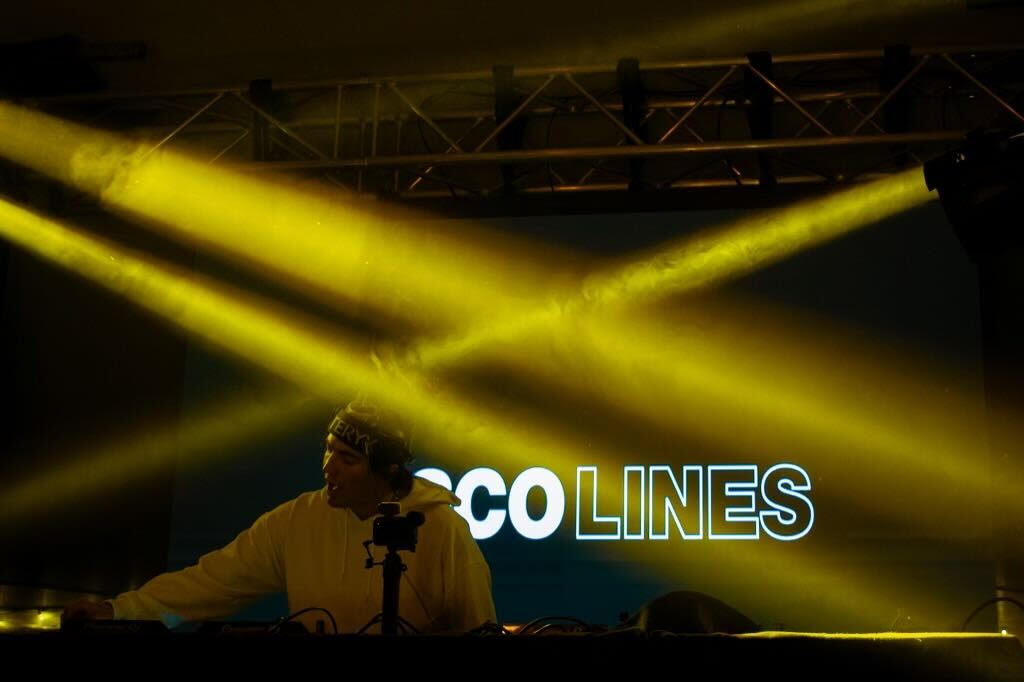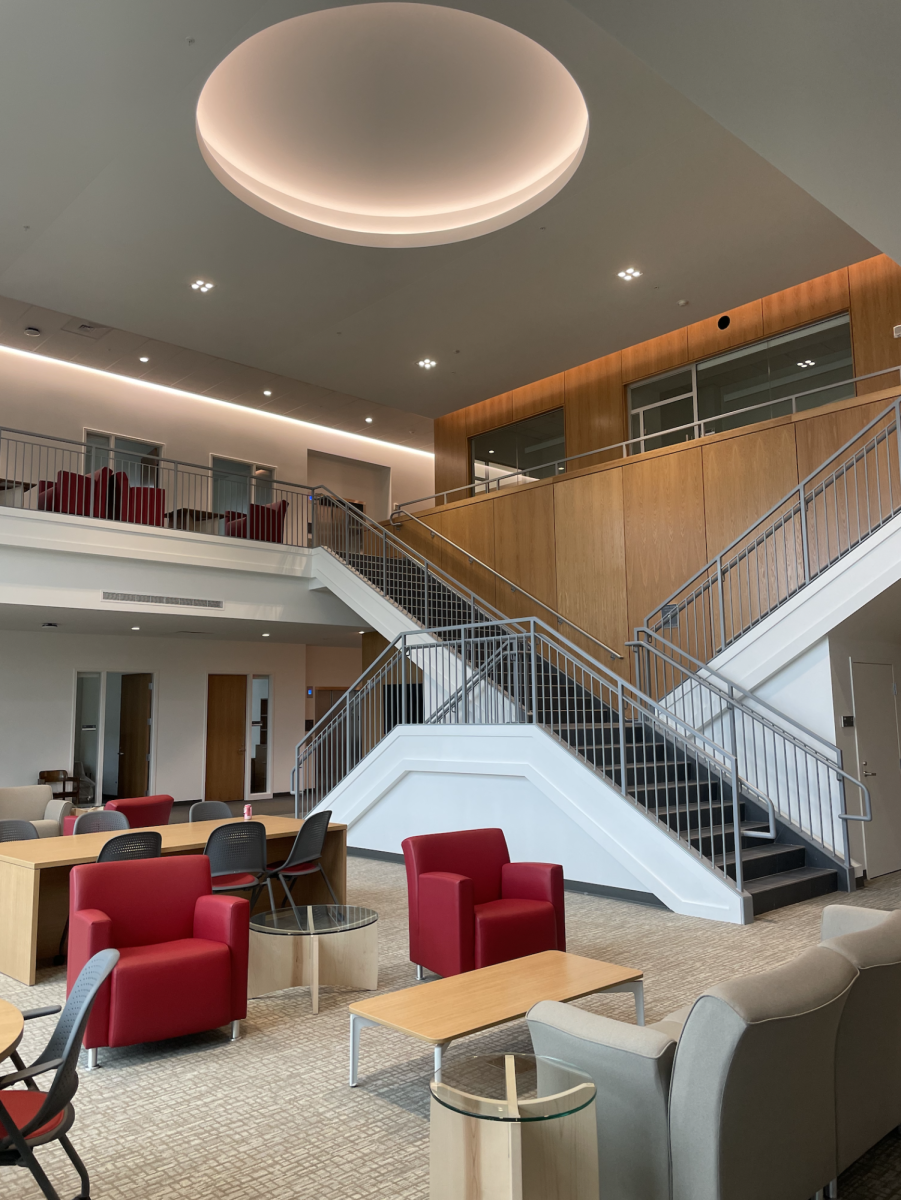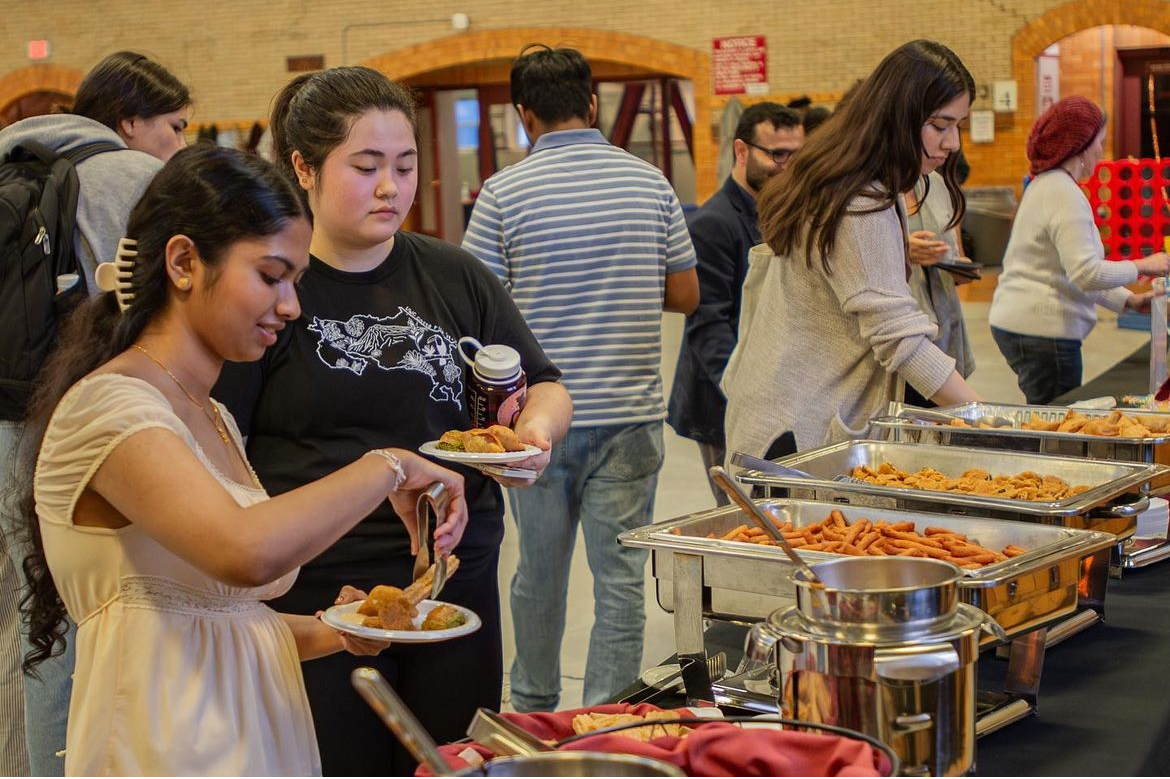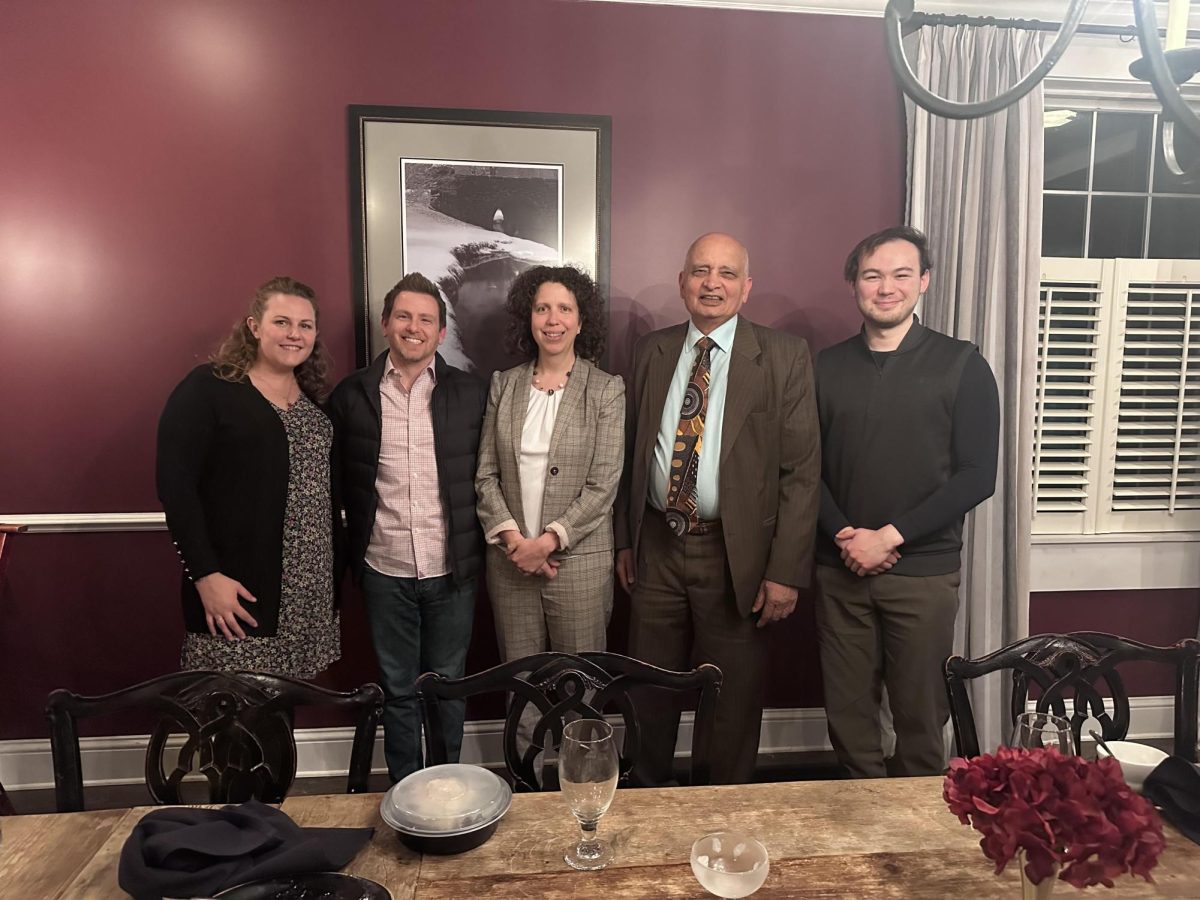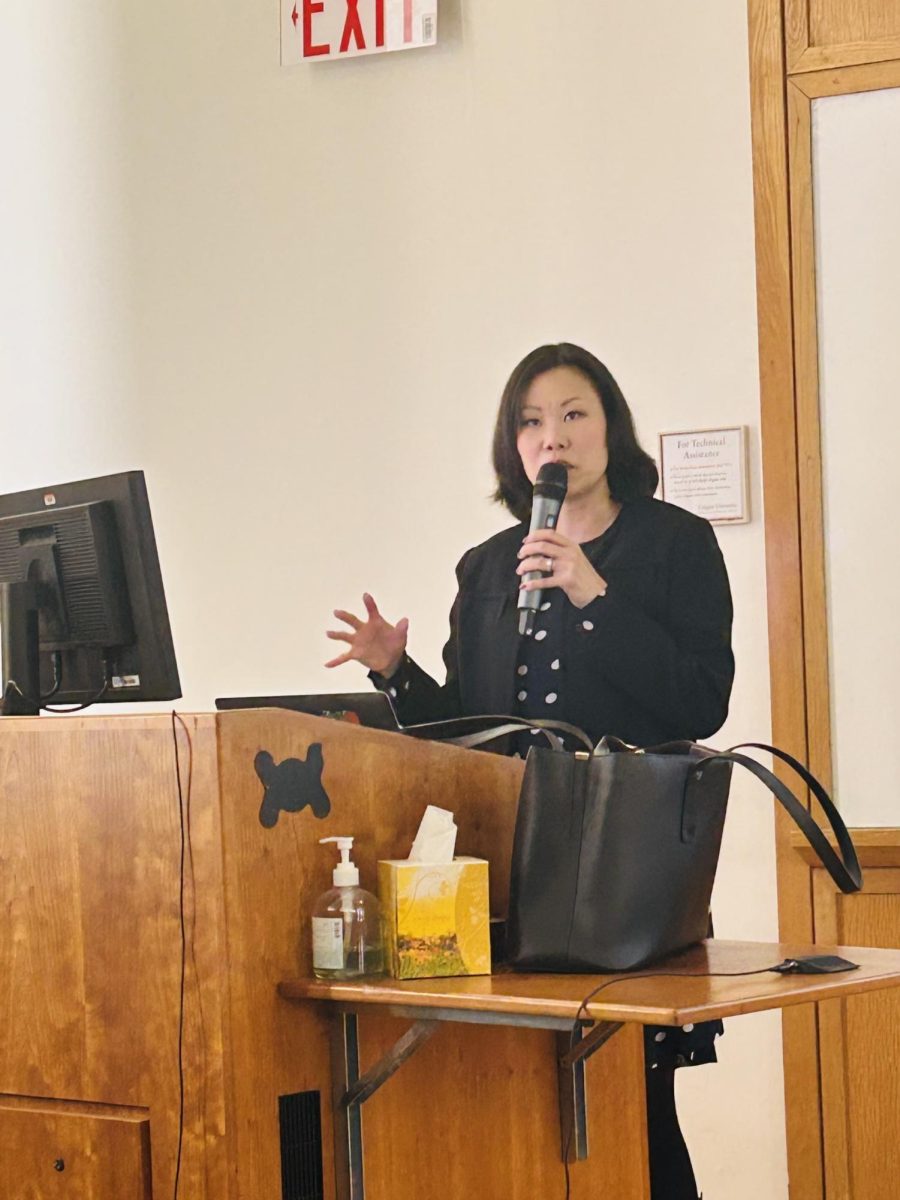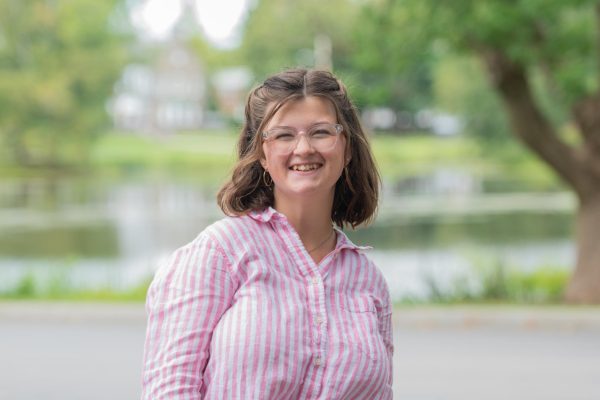A collective of Colgate University students known as Colgate Students for Liberation organized a vigil for Palestine alongside the Queer and Trans People of Color (QTPOC) student group on Wednesday, Feb. 28. The vigil began at 3:45 p.m. on the steps of the Colgate Memorial Chapel. Director of Middle Eastern and Islamic Studies Noor Khan and Campus Imam & Muslim Student Advisor Ahmet Çeli̇k both spoke at the event.
The vigil was organized to address an issue some felt the campus was not discussing enough, according to a statement posted to the group’s Instagram account.
“The University has ignored many of its students, faculty and members of staff who are suffering in silence and fear repercussions for expressing grief at the horror of what is unquestionably a humanitarian disaster,” the statement, posted Feb. 23, read.
Professor Khan emphasized the need for a space to unite at the vigil.
“Everyone I’ve talked to is in pain,” Khan said. “But we’re not talking to each other because we’re afraid to speak.”
Khan then examined the language used when discussing Palestine and cautioned against labeling the current situation in the Middle East a “war.”
“There is no such thing as a war in which one side can cut off all food, water, medicine and electricity from 2.2 million people and claim they’re all guilty of something,” Khan said. “There is no war in which 80 percent of the homes of the people being attacked are destroyed. Every single hospital is bombed. There are three functional hospitals today in Gaza. There is no war in which at least 75 percent of the dead are civilians.”
Senior Juan Gomez was one of the student organizers who also spoke at the vigil. Gomez used his time to discuss how many students, especially white ones, feel removed from the events that have unfolded in Palestine over the last few months and, therefore, do not feel the need to advocate for change.
“Instead of acknowledging or addressing these issues, [many students] choose to avoid them altogether, to preserve their own discomfort or sense of superiority,” Gomez said. “Essentially, this behavior perpetuates the status quo and protects the privileges and advantages that come with being white on this campus — often at the expense of recognizing and addressing the systemic issues.”
Following the student speakers, Çeli̇k spoke about the power of social media at this time and how there is no excuse to look away.
“Now, it is time for our humanity,” Çeli̇k said. “We are seeing everyone is watching. How do you destroy all human values we have?”
As classes let out at 4 p.m., the crowd grew steadily, and Çeli̇k began to lead a prayer. By the end of the prayer, a large crowd had gathered in front of the Chapel. The prayer was then followed by a five-minute moment of silence.
Junior Rania Chowdhury attended the vigil and noticed many students crossing the quad passed by the growing crowd.
“Grieving the death of over 30,000 people — nearly half of whom are children — should never be construed as controversial or unwarranted. To the people made uncomfortable by the vigil: What about our sadness do you find to be so alarming? Why don’t you share in it?” Chowdhury said. “It was really disheartening to see people walking past the vigil. Our campus has been quite silent about the genocide in Gaza, and I hope to see more people attending these events in the future.”
The current situation in the Middle East has sparked outrage and controversy throughout and beyond the United States since it began in October. The vigil allowed students and faculty to come together in their grief and reflect on a difficult and violent conflict.


